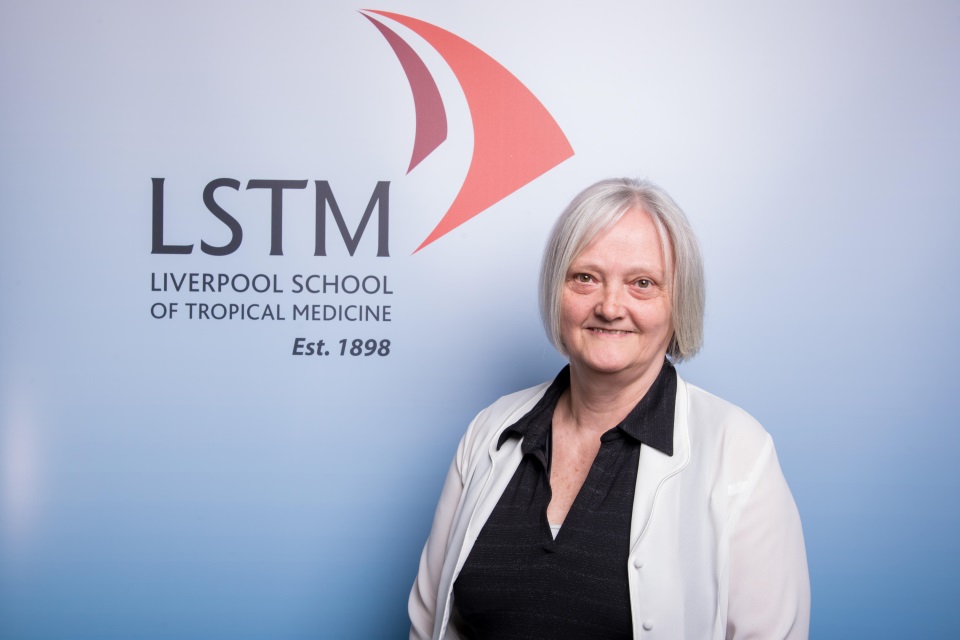Liverpool City Region consortium awarded lion’s share of £416m R&D funding
A consortium led by the Liverpool School of Tropical Medicine has today (June 26) been awarded £114m in government and industry funding as part of a package aimed at cutting-edge R&D projects.

Professor Janet Hemingway, LSTM
A total of £416m has been shared betwen seven schemes throughout the UK with the aim of creating thousands of jobs, with the Liverpool team taking the lion’s share.
The Government is providing £186m of investment as part of UK Research and Innovation’s (UKRI) flagship Strength in Places Fund, backed by a further £230m from private firms and research institutions.
Projects include research to develop autonomous and electric vehicles, zero-emissions tech for maritime vessels, and smart-packaging to cut food waste.
Each programme will deliver long-term economic benefits in every part of the UK, creating thousands of jobs, new skills, and encouraging more competitive and future-proof industries as our economy recovers from the coronavirus pandemic.
The Liverpool consortium, led by the Liverpool School of Tropical Medicine (LSTM), comprises the Liverpool University Hospitals NHS Foundation Trust, Evotec and the AMR Centre – both based at Alderley Park, Cheshire – Unilever UK, and the University of Liverpool.
Funding will cover a five-year period to deliver an innovative project delivering integrated therapeutic solutions for human infections.
The project will accelerate economic and regional productivity by creating eight specialist, commercially-sustainable research platforms for infectious disease therapeutics that will transform the efficiency of new product discovery, development, evaluation and impact assessment.
Project lead, LSTM’s Prof Janet Hemingway, said: “LSTM devised this programme, together with our industrial, NHS and academic partners aiming to be the first choice globally for infection research and development initiatives.
“This grant secures the international reputation of the region in infection innovation and will attract substantive follow-on international investment.”
Steve Rotheram, Metro Mayor of the Liverpool City Region, said: “The need to develop new treatments for infectious diseases has never been clearer, so this funding is fantastic news.
“This new approach to public R&D investment aims to boost local economic growth by building on world-class research and innovation capacity.
“This grant recognises the region’s existing strengths in this area and has already generated guarantees of around £90m for pilot projects eager to use the new platforms.
“There is great potential for high-quality jobs and economic value for Liverpool City Region and beyond.”
LSTM director, Prof David Lalloo, added: “Throughout its history, LSTM has always been at the forefront in innovative approaches in finding solutions for human infections.
“The current global COVID-19 outbreak shows, again, how essential and relevant our global expertise in the diagnosis, treatment and prevention of these diseases is.”
The Liverpool City Region, Cheshire and Warrington have the largest concentration of infectious diseases research in the UK.
Liverpool has a successful track record in respiratory vaccinology and disease prevention.
In response to COVID-19, LSTM, with funding from industry, is executing two trials of those potentially infected, one focusing on immunology in bloods and nasal mucosa and bacterial colonisation associated with clinical outcomes, and one which takes samples from healthcare workers and COVID-19 patients to assess changes in biomarkers during exposure to, or development of infection.
Business Secretary Alok Sharma said: “Today’s announcement will ensure some of our country’s most promising R&D projects get the investment they need to take off and thrive.
“Working with the private sector and our world-class universities, we’re backing new and innovative ideas that will create jobs and boost skills in every part of the UK for years to come.”
For more on Liverpool School of Tropical Medicine visit lstmed.ac.uk
